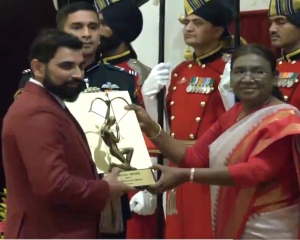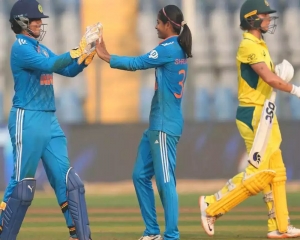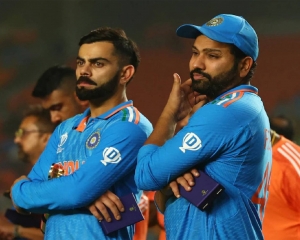The CBI investigation can only be ordered by the Central Government, the Supreme Court and the High Courts; this does not violate the federal structure of the Constitution
Irrespective of the facts whether the CBI investigation is appropriate in a particular case or not people of the country have much reliance on this agency in comparison to other investing agencies and the state police. The establishment of the CBI is under the Delhi Special Police Establishment Act 1946. Police is a State subject of list II. Section 2 of the Delhi special police establishment act 1946 provides for the constitution of a special police force for the investigation of union territory concerning offences notified in section 3 of said act. Section 5(1) says that the Central Government may by order extend the jurisdiction of CBI to any State. However, section 6 requires the consent of the State Government concerned to permit investigation of any offence within its territory. This requirement of consent is incorporated in the constitution of India in Entry 80 of List I which follows that the consent of the State Government is a condition precedent to be satisfied before calling upon the CBI to investigate any offence in that State.
Alignment with the Federal Structure:-
The consent of the State Government is required for permitting the investigation of any offence within its territory is consistent with the federal structure of the Constitution which ensures the autonomy of each State, in the matter of legislation and executive action. The consent can be in the form of General consent or specific consent concerning individual cases. Almost every State in India has provided the CBI with general consent to investigate within their State however at its discretion the State Government may withdraw the general consent at any time. As of now 8 States (Mizoram, West Bengal, Chhattisgarh, Rajasthan, Maharashtra, Kerala, Jharkhand and Punjab) have withdrawn their general consent required by the CBI to conduct an investigation in their respective states on the allegation that the Central Government was using the federal agency to destabilise the State Government. It is to be noted that all the States which have withdrawn the general consent are non-BJP ruling States.
Legal outlook:-
In the case of “State of West Bengal & Ors. Vs. Committee for protection of Democratic Rights and Ors. (2010)3 SCC 571”, the Hon’ble Supreme Court was called upon to decide the question of whether the High Court under article 226 and the Supreme Court under article 32 of the Constitution of India, can direct the CBI investigation in cognizable offences which is alleged to have been taken place within the territorial jurisdiction of a state without the consent of that state Government? The question assumed significance on account of the involvement of two basic features of the Constitution, namely the federal structure and the power of judicial review. The constitution bench answered the question referred to it by holding that a direction by the High Court in the exercise of its jurisdiction under Article 226 of the Constitution and the Supreme Court under Article 32 of the Constitution, to CBI to investigate the cognizable offence alleged to have been committed within the territory of that State without the consent of the State Government will neither impinge upon the federal structure of the constitution nor violate the doctrine of the power of separation and shall be valid in Law.
The Supreme Court further reiterated that before directing inquiry by CBI, the Court should conclude after considering the material placed on record that such material does disclose a prima facie case calling for an investigation by CBI.
Therefore the constitution bench has declared the law that in view of the constitutional scheme and the jurisdiction conferred on this court under article 32 of the constitution, the power of judicial review is an integral part of the basic structure of the constitution, therefore, any direction by the Supreme Court or High Court in the exercise of power under article 32 or 226 of the constitution to hand over the investigation to the CBI cannot be termed as violating the federal structure.
An important question arises here what is the test that will indicate that the action of the State Government is unreasonable or arbitrary? In this regard, it is worth mentioning here that the law is already settled on this score that, if the Court concludes, after going through the materials placed before it, that the refusal on the part of the State Government to give consent for investigation by CBI in a given case is arbitrary, then and only then, the Court may direct investigation by CBI.
So by virtue of law already settled and under the scheme of the constitution, the CBI investigation can be ordered by the three organs only i.e Central Government under the specific consent of the State Government where the alleged offence has been committed or cause of action arose, Supreme Court under article 32 of the constitution and the concerned High Court under article 226 of the constitution of India. Such direction for CBI investigation by these three organs does not violate the federal structure of the Constitution and surely is not an attack on the autonomy of the State.
(The writer is a practicing Advocate in the Supreme Court of India. The article is not for the purpose of legal advice. Views are personal)
The CBI investigation can only be ordered by the Central Government, the Supreme Court and the High Courts; this does not violate the federal structure of the Constitution
Irrespective of the facts whether the CBI investigation is appropriate in a particular case or not people of the country have much reliance on this agency in comparison to other investing agencies and the state police. The establishment of the CBI is under the Delhi Special Police Establishment Act 1946. Police is a State subject of list II. Section 2 of the Delhi special police establishment act 1946 provides for the constitution of a special police force for the investigation of union territory concerning offences notified in section 3 of said act. Section 5(1) says that the Central Government may by order extend the jurisdiction of CBI to any State. However, section 6 requires the consent of the State Government concerned to permit investigation of any offence within its territory. This requirement of consent is incorporated in the constitution of India in Entry 80 of List I which follows that the consent of the State Government is a condition precedent to be satisfied before calling upon the CBI to investigate any offence in that State.
Alignment with the Federal Structure:-
The consent of the State Government is required for permitting the investigation of any offence within its territory is consistent with the federal structure of the Constitution which ensures the autonomy of each State, in the matter of legislation and executive action. The consent can be in the form of General consent or specific consent concerning individual cases. Almost every State in India has provided the CBI with general consent to investigate within their State however at its discretion the State Government may withdraw the general consent at any time. As of now 8 States (Mizoram, West Bengal, Chhattisgarh, Rajasthan, Maharashtra, Kerala, Jharkhand and Punjab) have withdrawn their general consent required by the CBI to conduct an investigation in their respective states on the allegation that the Central Government was using the federal agency to destabilise the State Government. It is to be noted that all the States which have withdrawn the general consent are non-BJP ruling States.
Legal outlook:-
In the case of “State of West Bengal & Ors. Vs. Committee for protection of Democratic Rights and Ors. (2010)3 SCC 571”, the Hon’ble Supreme Court was called upon to decide the question of whether the High Court under article 226 and the Supreme Court under article 32 of the Constitution of India, can direct the CBI investigation in cognizable offences which is alleged to have been taken place within the territorial jurisdiction of a state without the consent of that state Government? The question assumed significance on account of the involvement of two basic features of the Constitution, namely the federal structure and the power of judicial review. The constitution bench answered the question referred to it by holding that a direction by the High Court in the exercise of its jurisdiction under Article 226 of the Constitution and the Supreme Court under Article 32 of the Constitution, to CBI to investigate the cognizable offence alleged to have been committed within the territory of that State without the consent of the State Government will neither impinge upon the federal structure of the constitution nor violate the doctrine of the power of separation and shall be valid in Law.
The Supreme Court further reiterated that before directing inquiry by CBI, the Court should conclude after considering the material placed on record that such material does disclose a prima facie case calling for an investigation by CBI.
Therefore the constitution bench has declared the law that in view of the constitutional scheme and the jurisdiction conferred on this court under article 32 of the constitution, the power of judicial review is an integral part of the basic structure of the constitution, therefore, any direction by the Supreme Court or High Court in the exercise of power under article 32 or 226 of the constitution to hand over the investigation to the CBI cannot be termed as violating the federal structure.
An important question arises here what is the test that will indicate that the action of the State Government is unreasonable or arbitrary? In this regard, it is worth mentioning here that the law is already settled on this score that, if the Court concludes, after going through the materials placed before it, that the refusal on the part of the State Government to give consent for investigation by CBI in a given case is arbitrary, then and only then, the Court may direct investigation by CBI.
So by virtue of law already settled and under the scheme of the constitution, the CBI investigation can be ordered by the three organs only i.e Central Government under the specific consent of the State Government where the alleged offence has been committed or cause of action arose, Supreme Court under article 32 of the constitution and the concerned High Court under article 226 of the constitution of India. Such direction for CBI investigation by these three organs does not violate the federal structure of the Constitution and surely is not an attack on the autonomy of the State.
(The writer is a practicing Advocate in the Supreme Court of India. The article is not for the purpose of legal advice. Views are personal)


















